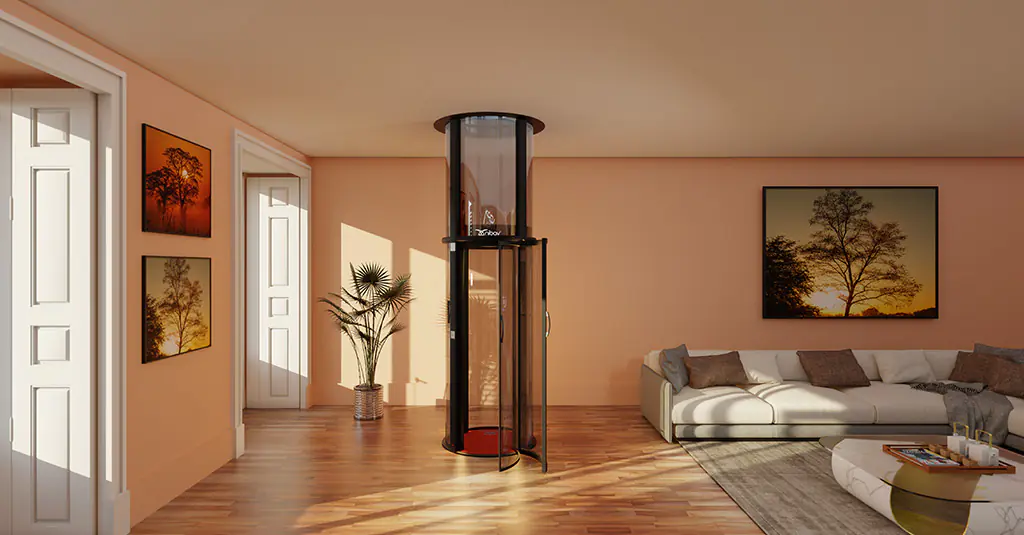
Adding a home elevator to your house can significantly enhance accessibility, convenience, and even property value. But what if you have limited space? Fortunately, modern home elevators for small spaces are designed to fit compact areas without compromising functionality or style.
If you’re considering installing an elevator in a small home, this guide will walk you through everything you need to know to make the right choice.
1. Assess Your Space Requirements
Before choosing a home elevator, evaluate the available space in your home. Some elevators require a dedicated shaft, while others, like vacuum or pneumatic lifts, can be installed with minimal structural modifications.
Key considerations:
- Dimensions of the available space (hallways, corners, or unused closets)
- Load capacity required for safe and comfortable use
- Number of floors the elevator needs to serve
2. Understand Different Types of Home Elevators
Several types of home elevators are available, each suited to different space constraints.
A. Pneumatic Vacuum Elevators (PVE)
- Ideal for small homes or apartments
- Require no pit or machine room
- Sleek, cylindrical design that takes up minimal space
- Operates using air pressure technology
B. Shaftless or Through-Floor Elevators
- Compact, space-saving design
- Travels between two floors
- Ideal for wheelchair users or individuals with mobility issues
C. Hydraulic Home Elevators
- Requires a small machine room
- Offers a smooth and quiet ride
- Higher weight capacity but takes up more space
D. Cable-Driven or Traction Elevators
- Common in commercial buildings, but residential models are available
- Require a dedicated shaft
- Great for multi-story homes
3. Consider Safety Features
Safety is a top priority when selecting a home elevator for small spaces. Look for these essential features:
- Emergency stop button
- Battery backup (to operate during power outages)
- Automatic door locking
- Safety sensors to detect obstructions
- Smooth start and stop mechanisms to prevent jerky movements
4. Evaluate Installation Requirements
The installation process depends on the type of elevator you choose. Shaftless and pneumatic elevators are easier to install and require fewer modifications, making them ideal for small spaces. Hydraulic and cable-driven elevators, on the other hand, may require extensive construction.
Ask your elevator provider:
- How long will the installation take?
- What structural changes are needed?
- What is the cost of installation?
5. Choose a Design That Matches Your Home
A home elevator should complement your interior design. Many manufacturers offer customizable options, including:
- Glass-paneled cabins for a modern look
- Wood finishes for a classic appeal
- Compact models that blend seamlessly into your home’s layout
6. Budget Considerations
The cost of a home elevator for small spaces varies depending on:
- Type of elevator (pneumatic, hydraulic, cable-driven)
- Installation complexity
- Customization options
- Maintenance requirements
Average cost range:
- Basic models: $20,000–$30,000
- Mid-range models: $30,000–$50,000
- Luxury or customized models: $50,000+
7. Energy Efficiency and Maintenance
If energy efficiency is important to you, pneumatic elevators are a great choice, as they consume minimal electricity. Hydraulic and cable-driven elevators may require more power and regular maintenance to keep them running smoothly.
Maintenance tips:
- Schedule annual inspections to ensure safety
- Keep the tracks and cables clean
- Check battery backups and emergency features
8. Compare Brands and Warranties
Not all home elevator brands are the same. Research different manufacturers and look for warranties that cover:
- Parts and labor
- Mechanical components
- Emergency repairs
Some of the top home elevator brands include:
- Nibav Lifts
- Stiltz Home Lifts
- Savaria
- Pneumatic Vacuum Elevators
9. Get Professional Consultation
Before making a final decision, consult with a home elevator expert. They can assess your space, recommend the best model, and guide you through the installation process.
Final Thoughts
Choosing the best home elevator for small spaces requires careful consideration of size, type, budget, safety features, and design. By doing thorough research and working with trusted professionals, you can find the perfect compact elevator that enhances your home’s convenience and accessibility.